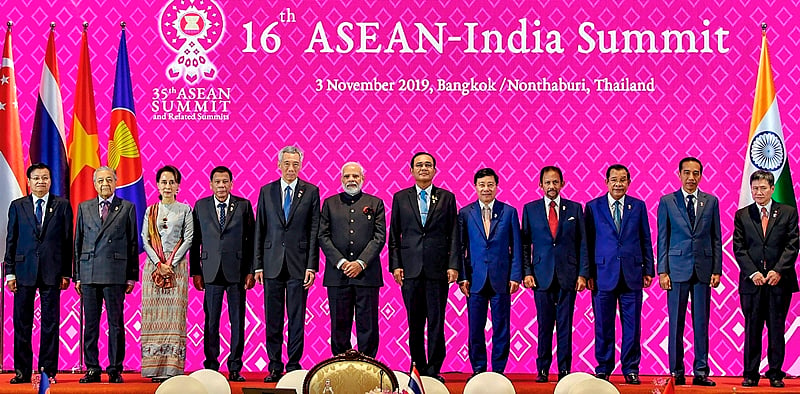It is too early to pass judgement on Prime Minister Narendra Modi’s decision to not sign the Regional Comprehensive Economic Partnership (RCEP) stemming from fears that it would put the domestic industry and agriculture at risk. The decision is bold and courageous and only time will tell whether it is the right decision for India’s trading and overall economic interests. The fact that leading opposition parties in India had sought to dissuade the Modi government from signing is no big index because of the propensity of major Opposition parties to oppose anything that the Modi government does or seeks to do. Yet, if there is prima facie evidence to surmise that Indian interests would be jeopardised by signing it, it is prudent not to jump into it just because 15 countries including Asean member-states, China, Japan and South Korea are working towards it to create the world’s largest free trade bloc. The key item for negotiation at the RCEP summit in Bangkok was reduction or elimination of import duty on nearly 90 per cent goods. The Indian fear was that her signing the RCEP would lead to a surge in Chinese imports into India and Indian industry which is already hit hard by cheap but sub-standard Chinese products would be hit even harder. As it is, cheaper Chinese substitutes have led to closure of thousands of small and cottage industries in India, driving huge numbers out of jobs.
India has as yet not ruled out joining RCEP completely and it could well be that the grouping may be ready to give in on building safeguards to check any import surge and of laying greater stress on services besides giving credible commitment on non-tariff barriers, as some of the sore points of this country. The fears of Chinese swamping of markets are real and many countries have been victims of it though they may not say so. As it is Australia and New Zealand have only accepted the RCEP in principle. With the economic picture none-too-bright in India of late, it would be suicidal for India to get drawn into any measures that may harm national interest. That is more important than India coming on board the RCEP, brushing aside Indian economic interests. That India regards Asean as an important regional bloc is beyond question. Every effort must be made to step up Indo-Asean economic cooperation but not at the cost of national interest.






